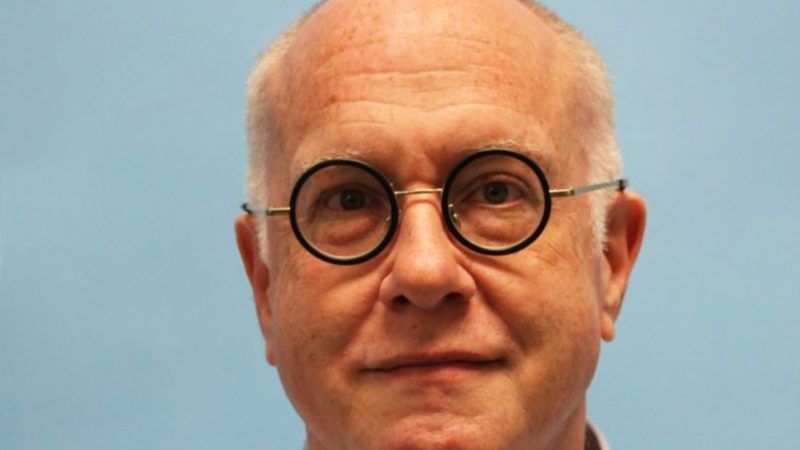How To Fix Social Media and Democracy
The creator of "Godwin's law" about Hitler analogies has a bold new vision for free expression, online and off.

It's a rare week when a major politician doesn't threaten social media with censorship or other legal action. President Donald Trump regularly inveighs against Facebook and Twitter, claiming that such platforms minimize the reach and influence of posting by him and conservatives. Sen. Elizabeth Warren (D–Mass.) has promised to break up tech giants using antitrust law if elected president. Meanwhile, talking heads and experts routinely blame social media for mass shootings, rising suicides, and all sorts of social maladies.
Is any of this true? If it is, what should we do about it? And if it isn't, why are we so freaked out? On today's podcast, Nick Gillespie interviews Mike Godwin, whose new book, The Splinters of our Discontent: How to Fix Social Media and Democracy Without Breaking Them, is a richly researched and remarkably panic-free discussion of how Facebook, Twitter, and other social media actually operate and influence public discourse, including elections. Currently a "distinguished senior fellow" at the think tank R Street, Godwin has a long and legendary history when it comes to cyberspace. Back in the 1990s, he was the first staff counsel for the Electronic Frontier Foundation (EFF) and helped craft the legal arguments that ultimately struck down government control of online speech in The Communications Decency Act of 1996. He also codified what's become known as "Godwin's law," which holds that the longer an online discussion continues, the probability of a comparison involving Nazis, Adolph Hitler, or the Holocaust approaches 100 percent. Godwin has served as general counsel for Wikimedia Foundation, is the author of Cyber Rights: Defending Free Speech in the Digital Age, and longtime Reason contributing editor (read his Reason archive here).
Social media, argues Godwin, isn't broken at all, although both tech companies and users need to clarify their terms of engagement. On the other hand, he says, democracy is in deep disarray, for reasons that go back to the very founding of the United States.
Audio production by Ian Keyser.


Show Comments (53)